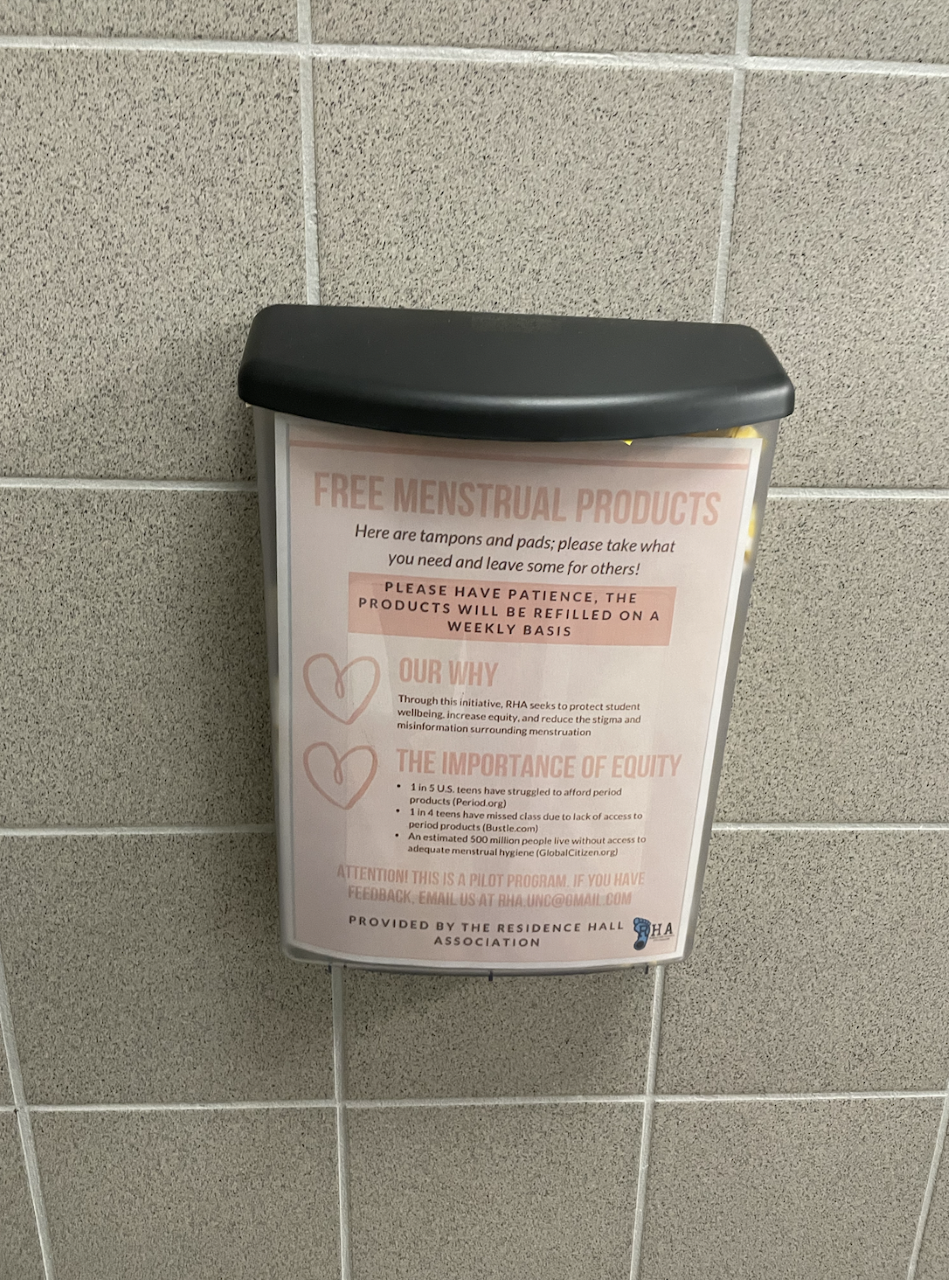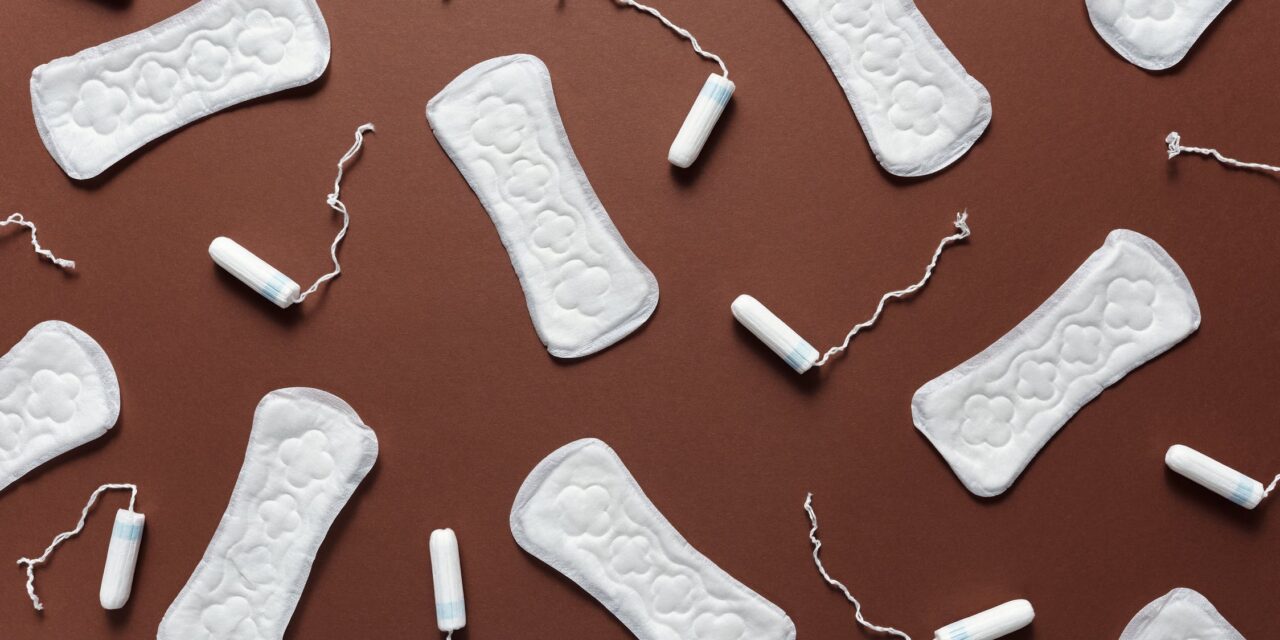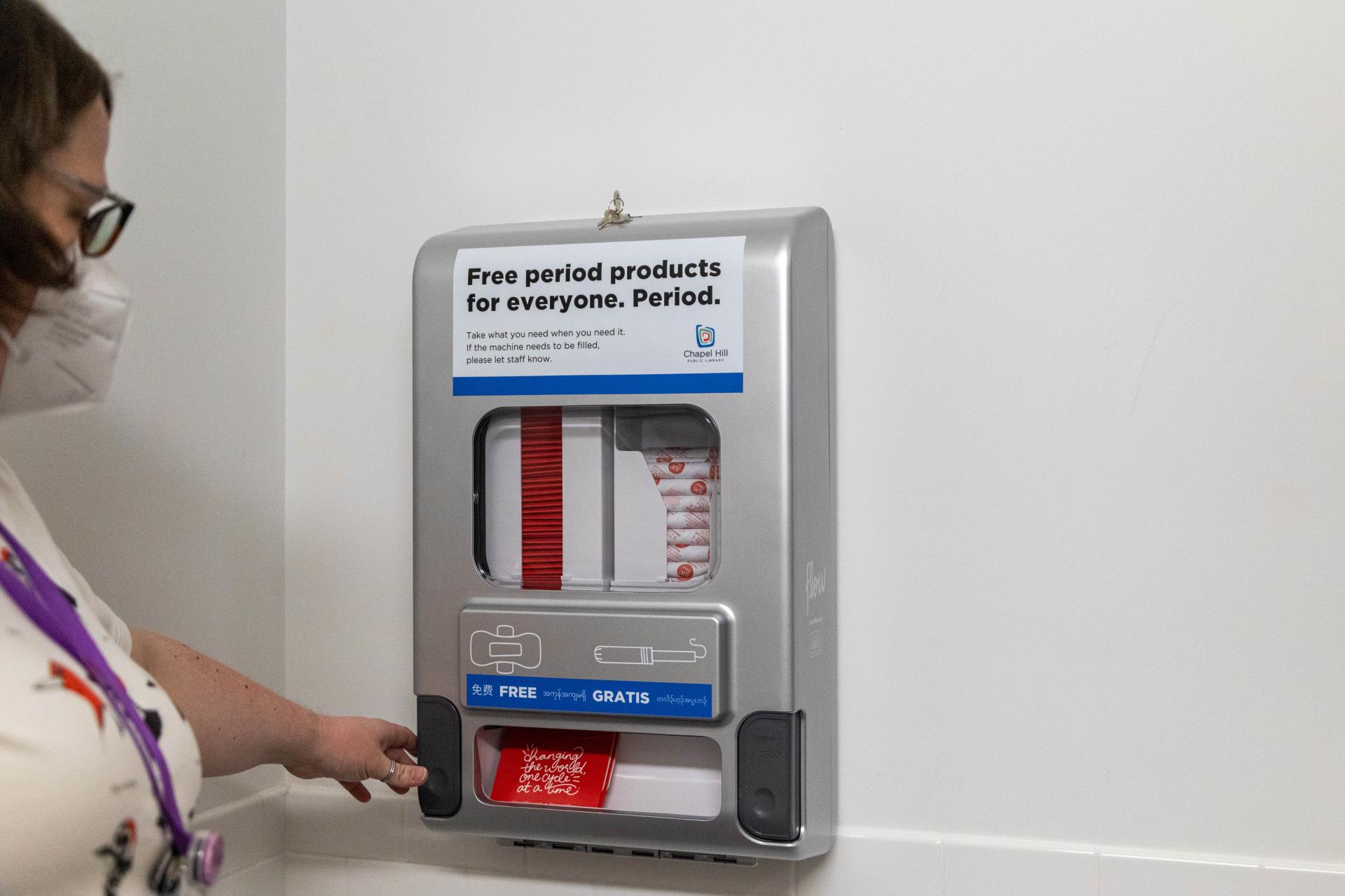Nearly 1 in 5 U.S. teens have struggled to afford period products and 1 and 4 teens have missed class because of their lack of access to period products. A new program through the UNC Residence Hall Association (RHA) is working to combat that gap. Every residential community on campus now has access to free menstrual products.
Free menstrual products are not new to UNC’s campus. The RHA program is using the same supplier as the Carolina Union to provide pads and tampons to residents. But until last month, there was no prior access to such products in residence halls.
Elliana Alexander, president of the UNC Residence Hall Association, has been working on a pilot program for free menstrual products for years. She said the project was formed in the spring of 2020 before campus shut down due to COVID-19.
“Essentially we decided that we felt that menstrual products should be provided to all menstruators in residence halls,” Alexander said. “We know that there are equity issues globally and at Carolina with access to menstrual products. We wanted to alleviate that gap.”
Alexander said working to eliminate the gap to menstrual products can allow all students to focus on enjoying their Carolina experience without having to worry about affording menstrual products.
RHA operates off money from student fees to provide programming to students. Alexander said if the RHA menstrual program paid for the products for every single person who lived on campus, those costs would total more than $300,000 a year.
“Unfortunately, we’re not able to fully address it and pay for the menstrual products of every single menstruator at Carolina,” Alexander said. “We are hoping to supplement that need.”
Alexander said the goal for the program is to provide one pad and one tampon to every resident per month. She acknowledged those quantities aren’t enough to provide everyone’s needs. Instead, RHA hopes community members will take just what they need so those on campus who need products the most can access them.

RHA free menstrual product box in residential halls (Elliana Alexander).
“This program is going to cost us $35,000 a year for all the residential communities,” Alexander said. “That’s a hugely significant chunk of our budget and we’re taking that money from our reserves because we’ve been able to save so much money over the past couple of years. We really want to use that money and give it back to residents. We don’t want it just sitting in our bank.”
Alexander said RHA paying for the menstrual product program will not be sustainable forever. But, she said she hopes the program could eventually be just another university-funded program on campus.
In March, boxes were installed in at least two restrooms in each residential community which means students can access products right now. Alexander stressed accessibility as a key reason behind location choices.
“They’re in at least a men’s and women’s restroom because we want to acknowledge that menstruation happens for people who identify differently regardless of gender identity,” Alexander said. “Where possible in communities that have gender neutral restrooms, we have products in those restrooms so that hopefully everyone can access these products.”
Products will be shipped directly to residence halls and distributed by community government leaders. Those leaders will refill boxes on a weekly basis throughout their residential communities.
Chapelboro.com does not charge subscription fees. You can support local journalism and our mission to serve the community. Contribute today – every single dollar matters.




